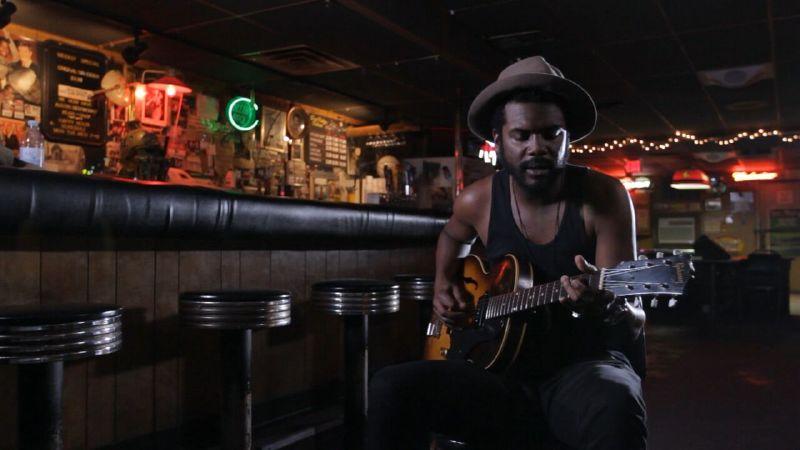I would venture to say that few people know much about country blues in the 1920s but a fair few know a little something about the civil rights movement in the 1960s. In Two Trains Runnin’, director Samuel D. Pollard tells an entertaining story about the search for two forgotten blues singers in 1960s Mississippi. It’s unfortunate that he tries to equate this search with the concurrent civil rights movement, taking the film from a cute story to a bewildering conclusion.
Two Trains Runnin’ primarily follows two groups of white young men, one group from Massachusetts and one from California, that decide to find legendary 1920s country blues singers Son House and Skip James in Mississippi in the summer of 1964. By coincidence, that was the summer known as the Freedom Summer when hundreds of college students flocked to Mississippi to join the civil rights movement and register voters. Unaware of the violent environment they’re about to enter, the young men’s quest and the civil rights movement inevitably cross paths.
Narrated by Common and featuring performances from modern blues musicians like Gary Clark Jr. and Buddy Guy, the film is richly steeped in the genre it holds so dear. The documentary uses archival footage and recordings of Son House and Skip James to bring these mythical characters to life.
Outside of a fantastic soundtrack, the search for Son House and Skip James is certainly entertaining. A bunch of white, clueless young guys from the coasts ride into the South with no real leads and no clue how to handle the hostile environment of 1964 Mississippi. Without revealing too much, the story feels like a true caper, with our heroes following breadcrumbs and getting into near-danger.
If that was all Two Trains Runnin’ attempted to cover, it’d be a good documentary. However, instead of covering the civil rights movement as context, Pollard seems to equate the movement and the search and only ends up muddling the message. I’ll admit, I knew nothing about 1920s country blues singers before the film. As interesting as it was to watch these young men set off on what was basically a wild goose chase, I found myself much more engrossed in the civil rights parts. I’m sure I learned about the Freedom Summer in high school at some point, but it felt so much more visceral when presented alongside archival tapes and filmed interviews with its participants. And just when you’d get swept up in the emotions of the Freedom Summer, you’d be back with your ragtag group of young dudes (now old dudes) waxing nostalgic on the craziness of their escapade.
Two Trains Runnin’ certainly does feel like two completely different trains running in the same film. One train is very little and chugs along happily while exploring country blues. The other is an emotion-filled giant of a train, a train still relevant in today’s society. While I see the message Pollard was trying to convey, in that the music and the movement mirrored each other, the little train was just too little to keep up.

